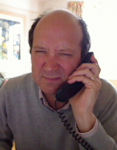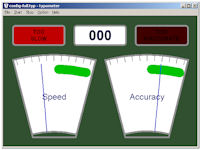Job Opportunities in Speech, Hearing and Phonetic SciencesPhD Studentship in Performance-based Measures of Speech Quality
Overview
Students will formally register for the PhD programme in September 2010. For candidates who can start earlier, we may be able to offer an internship position at the same rate as the student stipend, starting as early as January 2010. Please note the studentship is only available to UK and European candidates. Non-EU candidates can be only considered if they have lived in Europe for more than 3 years on a non-student visa. Application is by a letter of application and a CV, sent to:
Speech, Hearing and Phonetic Sciences University College London Chandler House 2 Wakefield Street London WC1N 1PF United Kingdom. n.wilkins@ucl.ac.uk Shortlisted candidates will be required to complete a graduate student application form and supply references from two referees. For more details, contact Mark Huckvale (m.huckvale@ucl.ac.uk). Background InformationOver many years the effect of noise and distortion on human perception of speech has been assessed on two scales, one of intelligibility and one of quality. Intelligibility has been measured using a performance index, usually % words correct, gathered in an articulation test (ISO, 2003); it has been widely used to assess telecommunications systems. Quality has typically been measured using listener opinions rather than listener performance, either by assigning a rating to a signal or by expressing a preference for one of a pair of signals (ITU, 1996). Quality measures are necessary in addition to intelligibility measures because intelligibility reaches a ceiling of 100% even for signals with noticeable noise or distortion. However, the use of listener opinions to assess quality is not without its disadvantages. Primarily the problem is that opinions are insensitive to small changes in the signal, and unreliable since listeners may be biased and inconsistent in their judgments. We believe that the use of listener preference to assess quality makes it harder to build a scientific account of how the presence of noise or distortion in a speech signal of good intelligibility affects the listening effort required to understand its message. Thus the goal of this research is to develop measures of listener effort which are based on performance in some listening test, rather than on listener opinion. For example, we might measure the reaction times, memory recall or comprehension of listeners in some speech task. By finding reliable ways of measuring effort we would hope to re-base the concept of "speech quality" on the ease with which listeners process speech signals. This may lead to a psychological model of the impact of signal distortions on human cognitive processing of speech. For example, it is still not clear whether noisy speech is harder to understand because of auditory masking or because of increased demands within linguistic decoding (Brungart et al, 2001).
We have already made a start with this research agenda through a pilot experiment looking at reaction time to speech in noise (Huckvale & Leak, 2009). There it was found that although the noise had no influence on the error rate, presenting digits in babble or car noise increased the reaction times needed for typing the digits. Interestingly, noise suppression did not compensate for the deteriorating effect of the noise on reaction times. Other authors have recently reported on similar approaches, e.g. Durin et al (2008) and Sarampalis et al (2009). References
|
|
University College London - Gower Street - London - WC1E 6BT - |


 If performance based measures of listening effort were reliable enough, they could be used to compare
different signal processing strategies in terms of the additional listening effort they impose.
Ultimately we would hope to be able to predict listening effort from signal properties leading to
applications that automatically choose between processing alternatives to improve the listener's
experience.
If performance based measures of listening effort were reliable enough, they could be used to compare
different signal processing strategies in terms of the additional listening effort they impose.
Ultimately we would hope to be able to predict listening effort from signal properties leading to
applications that automatically choose between processing alternatives to improve the listener's
experience.